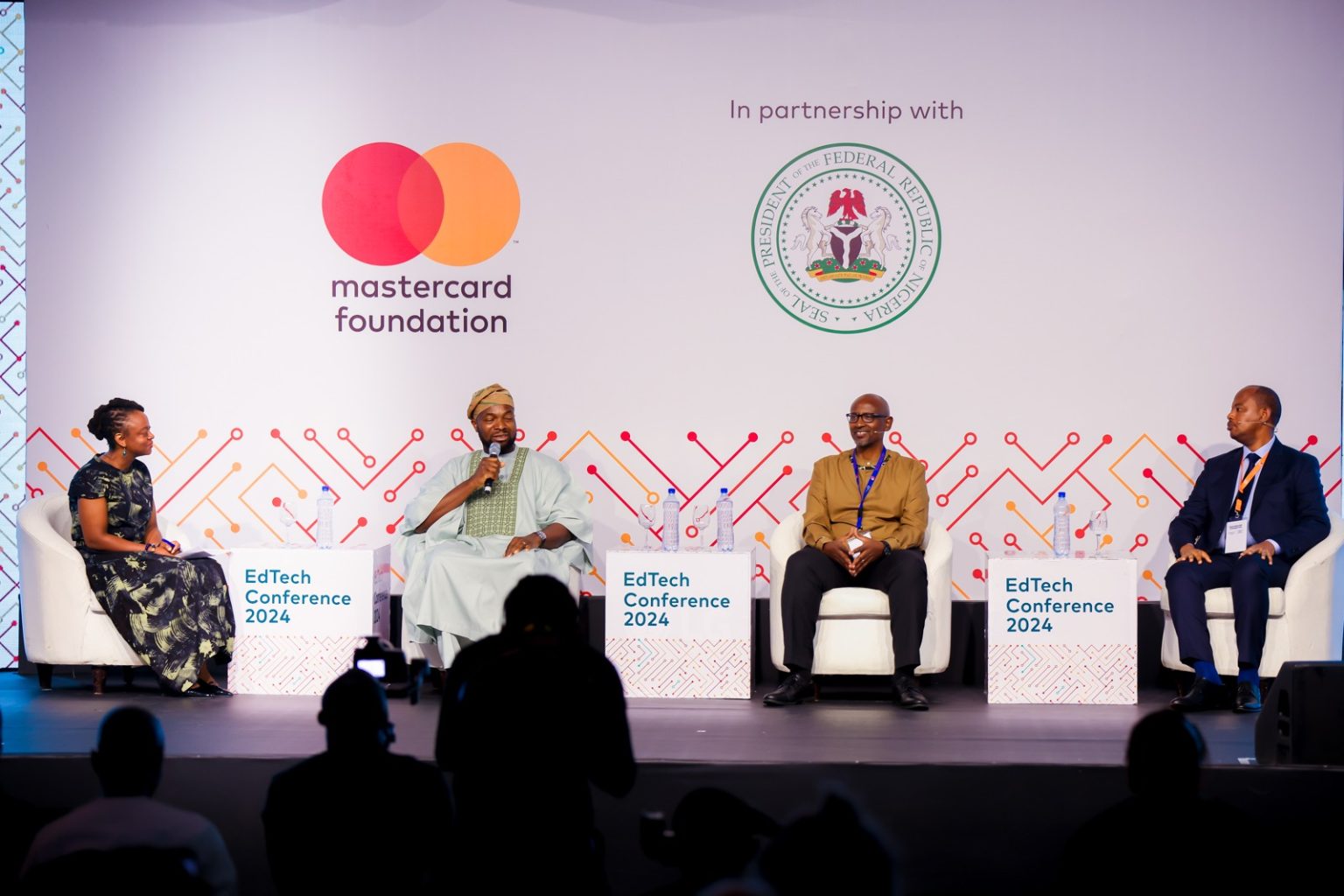The Mastercard Foundation, an international non-governmental organisation, kicked off its inaugural EdTech conference on Tuesday, posing a critical question: “How do we build resilient and inclusive EdTech ecosystems?” Rosy Fynn, Country Director Nigeria, Mastercard Foundation, posed this question to a room of over 500 attendees.
The high-level opening panel featured prominent speakers including Bosun Tijani, Nigeria’s Minister of Communications, Innovation, and Digital Economy; Joseph Nsengimana, Director, Mastercard Foundation Centre for Innovative Teaching and Learning; and Albert Nsengiyumva, Executive Secretary, Association for the Development of Education in Africa (ADEA).
READ MORE: Mastercard Foundation hosts inaugural EdTech conference in Abuja
The event, themed “Education Technology for Resilient and Inclusive Learning in Africa,” highlighted the need to leverage technology to promote inclusive education across the continent, supporting Africa’s burgeoning youth population.
Mr. Tijani emphasised the importance of a growing literacy agenda where Africans become digital literates to bridge existing gaps. “Our goal is to ensure that every young person in Africa has the opportunity to succeed in the digital age,” he stated, highlighting the transformative power of education and technology. He encouraged partnerships between startups and governments to strengthen EdTech across Africa.
READ MORE: Mastercard, AfDB partner on digital access for 100m individuals, businesses
Mr. Nsengimana underscored the importance of public-private partnerships in driving innovation. He noted, “Collaboration between governments, industry leaders, and educators is crucial in developing sustainable solutions for inclusive education.”
He also stressed the importance of collaboration, stating, “Nothing happens in a vacuum; they are most often borne out of collaboration. That’s why we at Mastercard Foundation believe in collaboration and have organised this conference to find ways of working together, especially for underserved populations across the continent.”
READ MORE: Mastercard invests $200 million in MTN’s fintech business
Mr. Nsengiyumva, Executive Secretary of ADEA, highlighted the need for innovative approaches to address the challenges facing education in Africa.
He said: “By leveraging technology, we can create more accessible and inclusive educational opportunities for all.”
Mr. Nsengiyumva emphasised a demand-driven approach to technology education, noting, “From the design, we need to start with the learners and understand their needs. The aim is to use education technology to address specific needs of learners.”
READ MORE: FG targets $15.7 trillion Artificial Intelligence market
He also cautioned against the misconception that technology could replace teachers, saying, “Technology will not replace the need for good teachers. Rather, good teachers should be empowered by technology.”
An important focus of the conference was the significant role that education plays in driving Africa’s economic growth. With a focus on innovation and collaboration, the summit aimed to develop strategies to empower Africa’s youth through access to quality education and technology tools. The discussions also covered funding opportunities for EdTech startups and the role of technology in advancing education at all levels.







